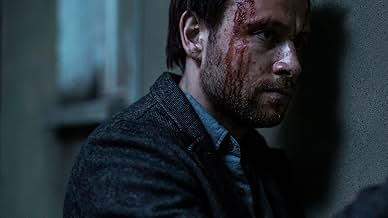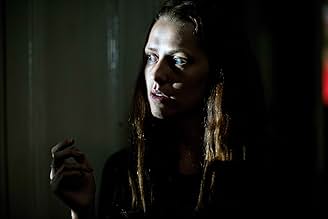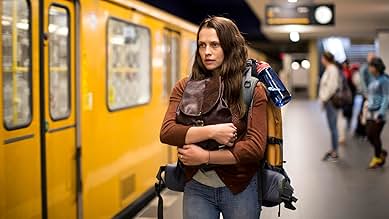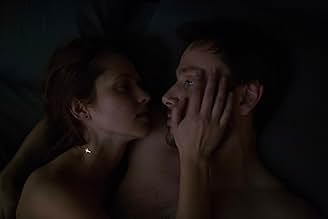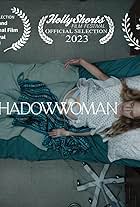A passionate holiday romance leads to an obsessive relationship when an Australian photojournalist awakens in a Berlin apartment one morning and is unable to leave.A passionate holiday romance leads to an obsessive relationship when an Australian photojournalist awakens in a Berlin apartment one morning and is unable to leave.A passionate holiday romance leads to an obsessive relationship when an Australian photojournalist awakens in a Berlin apartment one morning and is unable to leave.
- Director
- Writers
- Stars
- Awards
- 1 win & 23 nominations total
Viktor Bashmakov
- Benni
- (as Viktor Baschmakov)
- Director
- Writers
- All cast & crew
- Production, box office & more at IMDbPro
Featured reviews
"Berlin Syndrome" (Australia 2017) One of the newly available releases on Netflix from my Max Riemelt. A good (but not great) psychological thriller set in Berlin.
Clare (played by "Point Break's Teresa Palmer) is a young Australian woman on vacation in Berlin. Andi (Riemelt) is a local high school teacher who she meets on the street/in a bookstore. What was intended to be a one night stand turns very wrong when she awakens the next morning to find herself locked inside Andi's isolated and (soon to be revealed) well-fortified apartment.
The remainder of the film, which I would estimate spans a period of 6-9 months, is focused on Clare adapting and attempting to survive her captivity. There are clues that her predesessor didn't fare so well!
Both leads did a decent job portraying their respective characters and the cinematography and sound editing were eerie and added to the film's overall feeling of tension.
Critiques: the ending was pretty stale given all of the build-up and there was really no explanation of Andi's psychosis and behavioral anomalies (some hints perhaps but nothing at all concrete). Worth a look....just don't set your expectations too high. [3/5]
If you are hanging out for a good thriller with real style then this will capture you as surely as the girl at the centre of the story is caught.
Clare (Teresa Palmer), a young Aussie tourist travelling alone in Berlin meets handsome Andi (Max Riemelt). They have a one-night stand in his apartment in a rundown neighbourhood of Berlin. However when she goes to leave next morning she finds that Andi is a man with unexpected interests and likes having her around so much that she isn't going anywhere.
"Berlin Syndrome" has been compared to "The Collector", the old William Wyler movie with Terrance Stamp, but that was an overly mannered number compared to this.
If the film reminds me of any other, it would be "Something Wild" starring Carroll Baker and Ralph Meeker as the kept and the keeper. Made in 1961, there are big differences, but that film had a dose of Stockholm syndrome before we realised there was a Stockholm syndrome (named in 1973).
Of course the Stockholm syndrome is a theme in the "Berlin Syndrome" and if I have any criticism it is that the title "Berlin Syndrome" is a bit too obvious for a film that takes a fresh approach in nearly every other way.
Director Cate Shortland ("Somersault", "Lore") tells her stories as much visually as she does verbally; she isn't afraid of silence, and her choice of actors is inspired.
Teresa Palmer is disarming. Her Clare is a little shy, but she also invests her with sexiness, and feistiness. Her character epitomises those youthful, adventurous spirits that parents wave off at airports all over the world hoping that nothing like what happens to Clare will befall them.
Good looking Max Riemelt's Andi seems so intelligent and grounded at first that it is a surprise when his true nature is exposed; perfect casting against type.
"Berlin Syndrome" oozes quality from the engaging actors to great locations, photography and an understated, atmospheric score. Cate Shortland has cast just as fresh an eye on the psychological drama/thriller genre as Canadian Denis Villeneuve did on "Prisoners".
Clare (Teresa Palmer), a young Aussie tourist travelling alone in Berlin meets handsome Andi (Max Riemelt). They have a one-night stand in his apartment in a rundown neighbourhood of Berlin. However when she goes to leave next morning she finds that Andi is a man with unexpected interests and likes having her around so much that she isn't going anywhere.
"Berlin Syndrome" has been compared to "The Collector", the old William Wyler movie with Terrance Stamp, but that was an overly mannered number compared to this.
If the film reminds me of any other, it would be "Something Wild" starring Carroll Baker and Ralph Meeker as the kept and the keeper. Made in 1961, there are big differences, but that film had a dose of Stockholm syndrome before we realised there was a Stockholm syndrome (named in 1973).
Of course the Stockholm syndrome is a theme in the "Berlin Syndrome" and if I have any criticism it is that the title "Berlin Syndrome" is a bit too obvious for a film that takes a fresh approach in nearly every other way.
Director Cate Shortland ("Somersault", "Lore") tells her stories as much visually as she does verbally; she isn't afraid of silence, and her choice of actors is inspired.
Teresa Palmer is disarming. Her Clare is a little shy, but she also invests her with sexiness, and feistiness. Her character epitomises those youthful, adventurous spirits that parents wave off at airports all over the world hoping that nothing like what happens to Clare will befall them.
Good looking Max Riemelt's Andi seems so intelligent and grounded at first that it is a surprise when his true nature is exposed; perfect casting against type.
"Berlin Syndrome" oozes quality from the engaging actors to great locations, photography and an understated, atmospheric score. Cate Shortland has cast just as fresh an eye on the psychological drama/thriller genre as Canadian Denis Villeneuve did on "Prisoners".
This film tells the story of an Australian tourist, who meets a charming German man while she is backpacking in Berlin. A night of passion then leads to months of nightmare, as she is locked up in his fortified home.
I have not heard of the film "Berlin Syndrome" before, so I was pleasantly surprised by how well made it was. The story is realistic, convincing and very very disturbing. The thing is that, it could really happen to anyone in every day life. How would you know your new friend is not a psycho? The man in the film is so sick and perverted, that words just cannot describe it. This fear and uncertainty translates to real life easily, which makes the film very engaging and unnerving. The thrill of the film is very well portrayed and maintained. I find myself hoping for the best, but mentally prepared for the worst. It is a surprisingly thrilling film, and I would definitely recommend it to other people.
I have not heard of the film "Berlin Syndrome" before, so I was pleasantly surprised by how well made it was. The story is realistic, convincing and very very disturbing. The thing is that, it could really happen to anyone in every day life. How would you know your new friend is not a psycho? The man in the film is so sick and perverted, that words just cannot describe it. This fear and uncertainty translates to real life easily, which makes the film very engaging and unnerving. The thrill of the film is very well portrayed and maintained. I find myself hoping for the best, but mentally prepared for the worst. It is a surprisingly thrilling film, and I would definitely recommend it to other people.
I've never seen Teresa Palmer in a film before, which is especially weird because she's Australian. I'm sorry that I haven't, because she was utterly fantastic in Berlin Syndrome.
The story is fairly simple; an Australian tourist is swept off her feet by a charming local in Berlin, staying with him for a couple of days before realising that she isn't allowed to leave.
Palmer's performance as Clare is so excellent that counterpart Max Riemelt can barely keep up, but keep up he does. His character, Andi, can be dashing, friendly and witty, or he can be sinister, cold and (perhaps most frightening) entirely unreadable. While director Cate Shortland surely deserves an enormous share of the credit, a scene I found simply remarkable is one where Andi suffers a loss and we as an audience are still able to feel sympathy alongside Clare for this monster of a human being.
Presumably borrowing the title from Stockholm Syndrome, the lines in the relationship of Andi and Clare do begin to blur throughout the film. Where Clare feels resigned to her fate, she attempts to make the most of her situation. It's a heartbreaking journey into the human mind and what it will do to survive – or keep from going insane. In certain scenarios it's impossible to tell if Clare is so deluded as to be sincerely happy or not, though these scenarios are of course interspersed with descents back into crippling despair.
What's interesting is that we don't simply follow Clare for the duration of the film, but just as often see how Andi is spending his day. It's an interesting division of screen time that frequently has the audience seeing a scene from Andi's point of view as he arrives home; we wonder along with him what Clare has been up to while he's been gone. It's a strangely fun viewing experience watching him examine the apartment for anything amiss or askew.
The cinematography is great, the score fantastic. One thing I loved about the film was its ability to convey so much wordlessly. The two main characters are regularly away from each other, and these scenes are therefore obviously less reliant on dialogue. Despite this, we are able to see and almost breathe the raw, exposed emotion of the duo.
The flaws in this film lay with a couple of weird editing choices (at some point we seem to be misled as to whether a character is painting their own toenails or someone else is painting the toenails of a cadaver, for some reason, and elsewhere a flight of stairs and multiple apartments could absolutely have been less disorienting). Clare also has access to a kitchen, but never uses a knife in an escape attempt. Because of the exciting moment where she finds a screwdriver in an early scene, one would assume that the kitchen is knifeless but we're never shown an empty drawer or anything to indicate a lack of knives. It just felt a little off.
The ending was disappointing; it manages to be both predictable and nonsensical, which isn't a great combination. I didn't let that ruin the film for me, though; Berlin Syndrome is a wonderful character-study and a psychological tornado of violence and suspense.
Sidenote: Do people in Berlin just hate calling the police, or something?
http://alexfalzon.com/berlin-syndrome/ - for spoilers (and more reviews)
The story is fairly simple; an Australian tourist is swept off her feet by a charming local in Berlin, staying with him for a couple of days before realising that she isn't allowed to leave.
Palmer's performance as Clare is so excellent that counterpart Max Riemelt can barely keep up, but keep up he does. His character, Andi, can be dashing, friendly and witty, or he can be sinister, cold and (perhaps most frightening) entirely unreadable. While director Cate Shortland surely deserves an enormous share of the credit, a scene I found simply remarkable is one where Andi suffers a loss and we as an audience are still able to feel sympathy alongside Clare for this monster of a human being.
Presumably borrowing the title from Stockholm Syndrome, the lines in the relationship of Andi and Clare do begin to blur throughout the film. Where Clare feels resigned to her fate, she attempts to make the most of her situation. It's a heartbreaking journey into the human mind and what it will do to survive – or keep from going insane. In certain scenarios it's impossible to tell if Clare is so deluded as to be sincerely happy or not, though these scenarios are of course interspersed with descents back into crippling despair.
What's interesting is that we don't simply follow Clare for the duration of the film, but just as often see how Andi is spending his day. It's an interesting division of screen time that frequently has the audience seeing a scene from Andi's point of view as he arrives home; we wonder along with him what Clare has been up to while he's been gone. It's a strangely fun viewing experience watching him examine the apartment for anything amiss or askew.
The cinematography is great, the score fantastic. One thing I loved about the film was its ability to convey so much wordlessly. The two main characters are regularly away from each other, and these scenes are therefore obviously less reliant on dialogue. Despite this, we are able to see and almost breathe the raw, exposed emotion of the duo.
The flaws in this film lay with a couple of weird editing choices (at some point we seem to be misled as to whether a character is painting their own toenails or someone else is painting the toenails of a cadaver, for some reason, and elsewhere a flight of stairs and multiple apartments could absolutely have been less disorienting). Clare also has access to a kitchen, but never uses a knife in an escape attempt. Because of the exciting moment where she finds a screwdriver in an early scene, one would assume that the kitchen is knifeless but we're never shown an empty drawer or anything to indicate a lack of knives. It just felt a little off.
The ending was disappointing; it manages to be both predictable and nonsensical, which isn't a great combination. I didn't let that ruin the film for me, though; Berlin Syndrome is a wonderful character-study and a psychological tornado of violence and suspense.
Sidenote: Do people in Berlin just hate calling the police, or something?
http://alexfalzon.com/berlin-syndrome/ - for spoilers (and more reviews)
Australian Clare Havel (Teresa Palmer) is backpacking in Berlin. She meets a local named Andi and goes home with him. Next morning, she tries to leave after he left for work but finds that she's locked in.
A normal beautiful-woman-getting-kidnapped movie usually involves a violent shove into a murder van. The interesting change in this movie is that Clare willingly walks into her cage. It's a Venus flytrap. The moment of realization is great. I love the camera pushing in on the locked door. I would delay smashing the window. On the negative side, I don't think I care about the guy and his life. He's not original enough. This is a slow creepy movie.
A normal beautiful-woman-getting-kidnapped movie usually involves a violent shove into a murder van. The interesting change in this movie is that Clare willingly walks into her cage. It's a Venus flytrap. The moment of realization is great. I love the camera pushing in on the locked door. I would delay smashing the window. On the negative side, I don't think I care about the guy and his life. He's not original enough. This is a slow creepy movie.
Storyline
Did you know
- TriviaFilming began in Berlin, Germany, and eventually moved to Melbourne, Australia, where Teresa Palmer finished her scenes. Immediately after, she began filming on Hacksaw Ridge (2016) in Sydney, Australia.
- GoofsClare actually does have access to her mobile phone after Andi removes her SIM card because it is possible to make an emergency call without one.
- ConnectionsFeatured in Half in the Bag: Black Widow (2021)
- SoundtracksKottbusser Banger
Written by Oliver Van der Lugt
Performed by Polymath
- How long is Berlin Syndrome?Powered by Alexa
Details
- Release date
- Countries of origin
- Official sites
- Languages
- Also known as
- Mất Tích Ở Berlin
- Filming locations
- Production companies
- See more company credits at IMDbPro
Box office
- Gross US & Canada
- $28,660
- Opening weekend US & Canada
- $22,916
- May 28, 2017
- Gross worldwide
- $397,783
- Runtime1 hour 56 minutes
- Color
- Aspect ratio
- 2.39 : 1
Contribute to this page
Suggest an edit or add missing content






